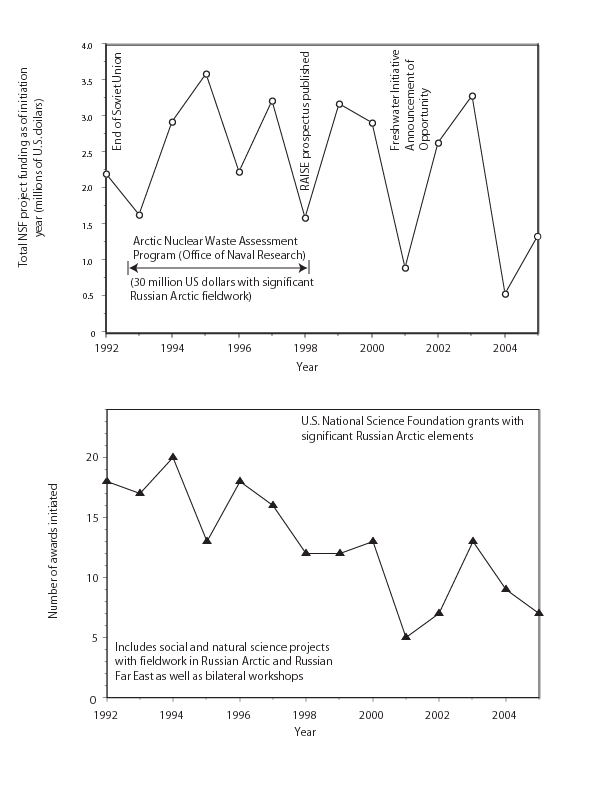
Figure 2 (from article submitted for consideration to EOS, Transactions of the American Geophysical Union; Homes, R.M., Cooper, L.W., and Lammers, R. "U.S. – Russian Cooperative Research in the Russian Arctic: Challenging but Essential" Caption: Total U.S. National Science Foundation project funding for projects with significant U.S. – Russian collaborations, as of the year of project initiation. b. Number of NSF projects with significant U.S. – Russian collaborations, as of the year of project initiation. Total funding and number of projects were identified by a search of the NSF award data base from 1992-2005, for the term “Russia” and/or “Russian arctic” appearing anywhere within the project summary or title of all NSF awards. Project summaries of approximately 500 NSF awards were evaluated and the following criteria were used to judge whether the project involved significant U.S. – Russian collaborative work in the Russian Arctic: Both social and natural science projects were included. Geographical boundaries were flexible, including fieldwork in Kamchatka, Siberia, Sakhalin Island and the Kuriles. Work using Russian laboratory facilities outside the Arctic, mathematical studies, and social science investigations in major Russian population centers outside the Arctic (e.g. Moscow and St. Petersburg) were not included. Workshop awards were only included if they primarily involved U.S. and Russian participants and were focused on arctic research problems. Some efforts indirectly funded by the NSF, such as block funding of the International Arctic Research Center at the University of Alaska Fairbanks are not included, but some recently funded projects that are included have broadly pan-Arctic sampling efforts, meaning that some fieldwork outside of Russia is reflected in the award funding totals. Dates of an announcement of opportunity that supported research on Russian rivers, the publication date of the RAISE prospectus that encouraged U.S. – Russian research collaborations in the Arctic, and the time line of the 1990’s ANWAP program that provided for significant research collaborations in the Russian Arctic are provided for perspective